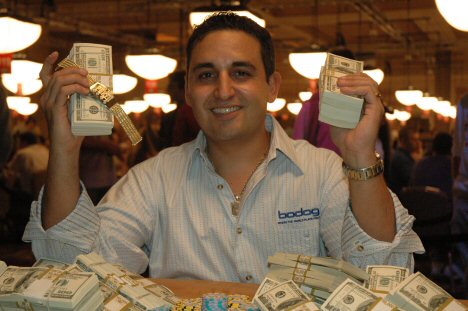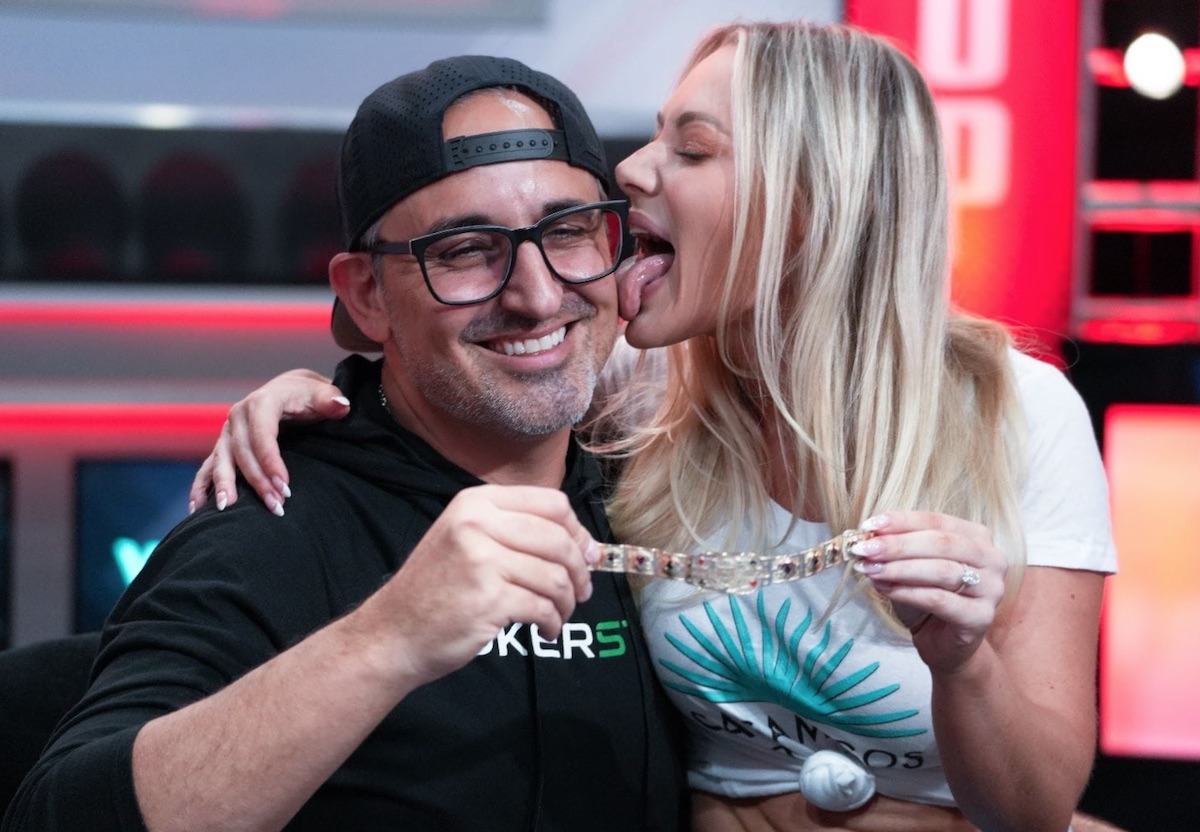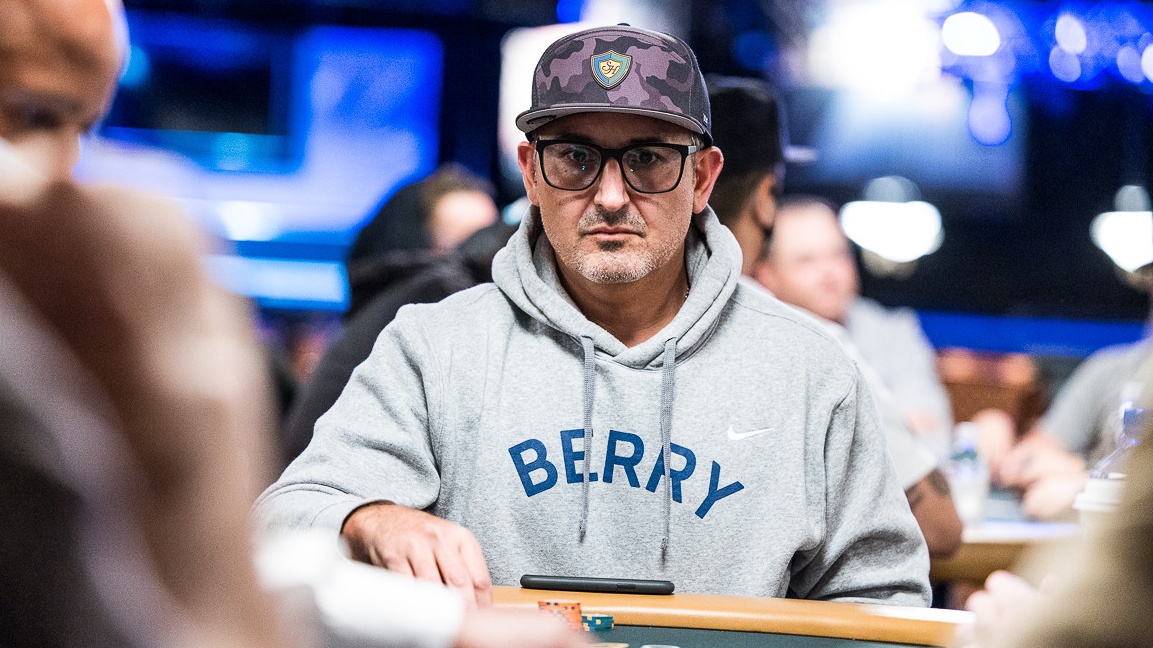From a Rocket Start to a 15-Year Hiatus
The host of 888Ride, David Tuckman, kicked off the interview with a bang: “I think you’re the most underrated and disrespected player in poker.” Arieh just smiles – he knows he has over $10 million in live tournament winnings, seven bracelets, and a Main Event final table under his belt, yet others often get more Hall of Fame recognition. “Scott Seiver and Nick Schulman deserve it more than I do. But I'm not done yet,” he says, adding that his job is simply to ‘do his work,’ not worry about rankings.
In the podcast, he reflects on the early days of his career – winning his first bracelet in 1999 and his iconic third place in the 2004 Main Event, where he experienced an 'emotional explosion' alongside Greg Raymer and David Williams that stays with him to this day. He takes the long years without major titles that followed as a fact: it wasn't until 2019 that a second career wave brought four bracelets in just a few years.

Competitiveness, Tilt, and Embracing Pain
If there’s one thing that defines Josh Arieh, it’s intense competitiveness. On 888Ride, he recalls choosing environments as a child where he could win – baseball, billiards, anything he was naturally good at. “I hate losing,” he says half-jokingly, though a story from the Bahamas shows emotions still run close to the surface. After a second-place finish in heads-up for a bracelet, he quickly congratulated his opponent and disappeared.
The difference now is in managing that anger. Instead of excuses like “I had bad cards” or “my opponent played terribly,” he analyzes each loss. “The biggest shift for me came when I stopped playing the victim and started taking responsibility for everything that happens to me,” he explains. He talks about how it was easier to give up before – if you don’t give your best, losing doesn’t hurt because you can tell yourself you weren’t really trying.
When Home Falls Apart, So Does the Game
One of the most candid parts of the interview revolves around his personal life. Arieh admits he wasn’t a 'good person' for years and plays his best when everything is fine at home. Before 2019, that wasn’t the case – tense relationships, stress, and chaos affected his decisions at the table. The divorce was painful, but as he says, it opened the door to a new start.
During this time, he met a partner he describes as having built him a 'solid foundation.' Today, he calls her his best friend. “It may sound cliché, but if the foundation is strong, what happens at the table doesn’t matter as much,” he explains. Looking back, he believes his results over the past five years owe as much to his personal life as to his poker skills.

From Bad Boy to Responsible Grinder
Tuckman in the podcast also recalls the controversial moment from 2004 when Arieh quietly told his friend David Williams to 'bust' Greg Raymer after being eliminated from the Main Event. The community labeled him a bully and a sore loser, bruising young Arieh’s ego. But years later, he says he’d tell a friend something similar today – the difference is knowing how much those reactions used to derail him. Now he’s learned that, “what you think about me is about you, not me.”
The new Arieh is not only more self-aware but also better surrounded by the right people. He mentions Matt Glantz, who taught him limit hold’em and helped with mixed games, and Daniel Negreanu, who even after thirty years can send him a novel about a single hand if he asks. His circle includes Shawn Deeb and Dan Weinman – a combination of grind mentality and brains that significantly helps in battles for hundreds of thousands.
A Dream of Another Main Event
When the conversation turns to the World Series of Poker, Arieh doesn’t hold back on compliments or criticism. As WSOP director, he would have previously addressed better food and better dealers – today, he admits that dealing has improved significantly over recent years, as has organization. But one thing remains: WSOP is still a unique festival he believes is worth enduring even the difficult days.
Looking to the future, he speaks surprisingly calmly. He moved to Vegas, runs PokerStake, where fans can buy players’ shares, and increasingly considers a house by a golf course in a community with people he’s competed against for decades. Ambitions, however, aren’t entirely shelved: he’d like to make another Main Event final table – ideally twenty years after his first. “I remember bouncing around the room with adrenaline back then. I’d love to feel that again,” he admits.
This year Arieh added his seventh bracelet (online this time) to his resume, further strengthening his Hall of Fame case. Whether he ultimately ends up in the Hall of Fame is for others to decide. If you’re intrigued by this story, listen to the full interview to delve into the journey of someone who learned to lose, stopped playing the victim, and built one of the longest-lasting careers at the WSOP.
More from 888 Ride:
Joe Cada in 888Ride: People said I was just lucky. But I knew I could play
Matt Berkey: High roller players may be twenty times better than me – but I still earn more
Daniel Negreanu: The more haters I have, the more I realize that I'm somebody
Shaun Deeb: I love calling out cheats and fraudsters; the poker industry needs cleaning up




